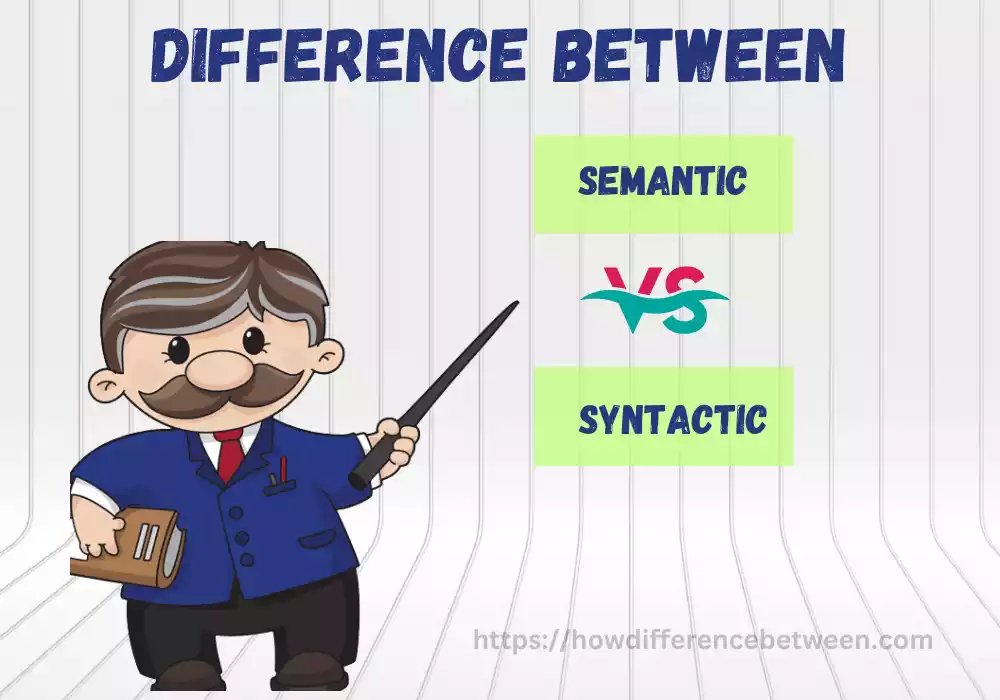On Time and In Time: “In English, the distinction between “on time” and “in time” may seem subtle, but it carries significant meaning. “On time” implies punctuality, denoting that an event or action occurred at its scheduled moment. It speaks to precision and adherence to a timetable. In contrast, “in time” conveys the idea of something happening before a deadline or a critical moment, often with an implication of urgency or just making it. While both relate to the concept of time, understanding their nuanced differences is essential for clear communication.”
Definition of On Time
“On time” refers to the act of being punctual, meaning that something occurs or is completed at its scheduled or expected time without any delay. It denotes precision in adhering to a set schedule or timetable. For instance, if a train is expected to arrive at 2:00 PM and it does so, it is said to have arrived “on time.”

Usage in Conversations
Here are some examples of how “on time” might be used in everyday conversations:
- Workplace:
- A: “Will the report be ready for the 10:00 AM meeting?”
- B: “Yes, I’ll have it prepared and presented on time.”
- Public Transport:
- A: “Do the trains usually run late here?”
- B: “No, they’re almost always on time.”
- School/College:
- A: “Was Jake late for class again?”
- B: “No, surprisingly he was on time today.”
- Social Gatherings:
- A: “I hope everyone arrives on time for the surprise party.”
- B: “Don’t worry, I reminded them all to be punctual.”
- Service Appointments:
- A: “How reliable is the cable technician?”
- B: “In my experience, they’ve always been on time.”
- Air Travel:
- A: “I hope our flight isn’t delayed.”
- B: “This airline is usually on time, so fingers crossed.”
- Personal:
- A: “I hate being late to events.”
- B: “Same here. I always try to be on time, if not early.”
These examples showcase the versatility of “on time” in various contexts, emphasizing punctuality and adherence to a set schedule.
Definition of In Time
“In time” refers to completing an action or arriving before a specified moment or deadline, often with the implication that there was a window of opportunity rather than a strict schedule. It suggests that something was done with enough time to spare before a crucial moment or event. For example, if someone reaches a venue before the start of a concert, they got there “in time” to see it.

Usage in Conversations
Here are some examples of how “in time” might be used in everyday conversations:
- Movies/Theater:
- A: “Do you think we’ll make the start of the movie?”
- B: “If we hurry, we’ll get there in time for the trailers.”
- Emergencies:
- A: “Did the ambulance reach the accident site quickly?”
- B: “Yes, thankfully they got there in time to help.”
- Workplace Deadlines:
- A: “This project is taking longer than expected.”
- B: “Don’t worry, I think we’ll finish in time for the presentation.”
- Events:
- A: “The concert starts at 8:00 PM, but we’re still on the road.”
- B: “If traffic eases up, we’ll be there in time to catch the main act.”
- Cooking:
- A: “The guests are arriving in an hour.”
- B: “The roast will be done in time, don’t worry.”
- Sporting Events:
- A: “He’s falling behind in the race!”
- B: “He might catch up in time for the finish line.”
- Personal:
- A: “I hope I can change my habits.”
- B: “With dedication, you’ll see improvements in time.”
These examples highlight the usage of “in time” in situations where there’s a span or window leading up to a crucial moment, event, or deadline. It often carries a nuance of hope, urgency, or relief, depending on the context.
Comparison Table of On Time and In Time
Here’s a simple comparison table for “On Time” vs. “In Time”:
| Criteria | On Time | In Time |
|---|---|---|
| Definition | Doing something at the scheduled or expected time. | Doing something before a certain deadline or event. |
| Emphasis | Precision and punctuality. | Adequate timing before a crucial moment. |
| Typical Context | Set schedules like public transport or appointments. | Upcoming deadlines or events with potential consequences. |
| Examples | “The train is always on time.” | “We got to the theater just in time for the movie.” |
| Implication | Adherence to a specific time or schedule. | Flexibility leading up to a key moment or deadline. |
| Related Emotions | Satisfaction, pride in meeting exact times. | Relief or urgency depending on proximity to the deadline. |
| Related Phrases | Punctual, Right on the Dot, Like Clockwork. | Just in the Nick of Time, Ahead of Time, Before it’s Too Late. |
This table gives a snapshot of the differences and nuances between the two expressions. Both are about timing, but they are used in different contexts and carry distinct connotations.
Real-life Examples of On Time and In Time
Here are real-life examples for both “on time” and “in time”:
On Time:
- Air Travel:
- “The 9:30 AM flight to New York always departs on time, making it reliable for business travelers.”
- Public Transportation:
- “I love using the metro in Tokyo; the trains are remarkably on time.”
- Meetings & Appointments:
- “Dr. Smith is always on time for her appointments, ensuring no patient waits too long.”
- School:
- “Being on time for class is a requirement at many institutions to foster discipline.”
- TV Shows:
- “Every evening at 7:00 PM, the news broadcasts on time, providing the latest updates to viewers.”
In Time:
- Emergencies:
- “The lifeguard spotted the struggling swimmer and reached him in time to prevent a tragedy.”
- Medical:
- “She felt an unusual pain in her chest but got to the hospital in time for the doctors to treat her.”
- Events & Shows:
- “Despite the heavy traffic, we made it in time to see the main act of the concert.”
- Workplace:
- “The team worked late into the night to ensure the project was completed in time for the client’s review.”
- Day-to-Day Activities:
- “I woke up late but managed to get ready in time to catch my usual bus to work.”
These real-life examples offer a clear understanding of the context in which “on time” and “in time” are used and how they differ in conveying punctuality and urgency, respectively.
Situations Where It’s Used
Certainly, let’s break down situations where “On Time” and “In Time” are typically used:
On Time
- Public Transportation:
- Buses, trains, or flights departing or arriving according to their schedule.
- Example: “The 7:45 train to Berlin always arrives on time.”
- Workplace Settings:
- Employees clocking in at the start of their shifts.
- Meetings starting exactly at the scheduled hour.
- Example: “I appreciate our team; they always submit reports on time.”
- Educational Context:
- School bells signaling the start of classes.
- Submitting projects or assignments by the exact due date.
- Example: “James was recognized for always handing in his assignments on time.”
- Events & Broadcasts:
- TV programs starting at their scheduled broadcast time.
- Concerts or public events starting at the announced time.
- Example: “The award ceremony began right on time.”
- Personal Commitments:
- Arriving at a friend’s house for dinner at the agreed time.
- Example: “It’s a sign of respect to be on time for personal engagements.”
In Time
- Emergencies:
- Reaching someone or somewhere before it’s too late.
- Example: “The firefighters arrived in time to save the house.”
- Entertainment & Events:
- Getting to a movie theater just before the movie starts.
- Example: “We reached the concert venue just in time to see the main act.”
- Work & Projects:
- Completing a task just before the deadline.
- Example: “We managed to finish the presentation in time for the client meeting.”
- Medical Situations:
- Reaching the hospital before a condition becomes critical.
- Example: “He got to the hospital just in time for the doctors to treat his injury.”
- Day-to-Day Activities:
- Catching a bus or train before it leaves, even if it’s just a few moments before.
- Example: “I woke up late but managed to get dressed and leave the house in time for my morning commute.”
In essence, “on time” typically denotes punctuality and precision in adhering to schedules, while “in time” often implies a sense of urgency or a near miss with a deadline or event.
Related Phrases and Variations
Both “on time” and “in time” have related phrases and variations that can help in understanding their nuances further or can be used in similar contexts. Here are some of them:
On Time:
- Punctual/Punctually: Describing someone or something that is on schedule.
- “She is always punctual for her appointments.”
- Right on the Dot: Referring to the exact moment something was expected.
- “The meeting started right on the dot.”
- To the Minute: Emphasizing precise timing.
- “The event was planned to the minute.”
- Like Clockwork: Referring to regularity and predictability.
- “The buses here run like clockwork.”
In Time:
- Just in the Nick of Time: Referring to the very last moment before it would be too late.
- “He managed to grab his passport just in the nick of time.”
- Ahead of Time: Before the expected or scheduled time.
- “She always finishes her tasks ahead of time.”
- Before (it’s) Too Late: Acting before adverse consequences.
- “We need to fix this leak before it’s too late.”
- In Good Time: With a comfortable amount of time to spare.
- “Don’t rush; we’ll get there in good time.”
- In the Meantime/Meanwhile: In the intervening period of time.
- “I’ll work on the report; in the meantime, can you prepare the presentation?”
Understanding and using these related phrases and variations allows for richer expression and helps provide clarity in various contexts where time is a significant factor.
Common Misunderstandings
Both “on time” and “in time” can be subjects of misunderstanding due to their nuanced differences. Here are some common misconceptions and mix-ups related to these expressions:
- Interchangeable Usage:
- Some believe that the two terms are interchangeable. While they both relate to punctuality, they carry different implications, as discussed.
- Overestimating Flexibility:
- If someone says, “I need this done in time for the meeting,” one might mistakenly believe they have until the very last moment before the meeting starts. However, the speaker might have meant a comfortable window before the meeting to review or prepare.
- Overlapping Scenarios:
- In some situations, both terms can technically apply, but their emphasis differs. For instance, “I arrived in time for the 3 o’clock train” means you arrived before the train’s departure. “I arrived on time for the 3 o’clock train” emphasizes the punctuality of matching the train’s schedule.
- Emphasis on Urgency:
- While “in time” often conveys a sense of urgency, it doesn’t always mean a last-minute rush. Some might misinterpret “in time” as always being a narrow escape from missing a deadline, which isn’t always the case.
- Cultural Differences:
- The interpretation of punctuality can vary across cultures. In some cultures, being “on time” might still be considered late, while in others, there’s more leniency around the concept of time, leading to potential misinterpretations of these phrases.
- Literal Translations:
- When translating from English to other languages, there might not always be direct equivalents for “on time” and “in time.” This can lead to confusion for non-native speakers when they revert to English or try to convey these nuances in their native tongue.
- Overemphasis on Precision:
- Some might believe that “on time” always requires pinpoint precision, like arriving exactly at the stroke of an hour. While precision is a key aspect, “on time” in everyday contexts usually carries a reasonable margin (like a few minutes in many social situations).
Understanding these common misunderstandings can help in refining communication, especially in diverse settings, and ensuring the intended message is conveyed and received effectively.
Conclusion
“On time” and “In time” are two nuanced expressions that often address punctuality but convey different implications. “On time” emphasizes precision, aligning with scheduled or expected timings, and underscores reliability. In contrast, “in time” suggests acting or arriving before a crucial moment or deadline, often carrying a sense of urgency or relief.
The distinction between the two is pivotal for clear communication, as their proper usage sets accurate expectations, conveys respect, and prevents misunderstandings. As simple as these phrases might seem, their correct application plays a significant role in both personal and professional interactions.































